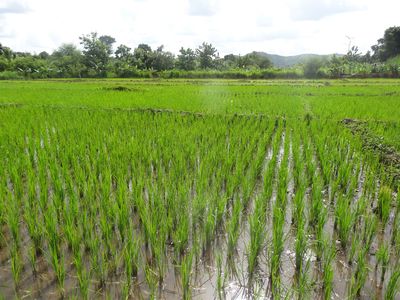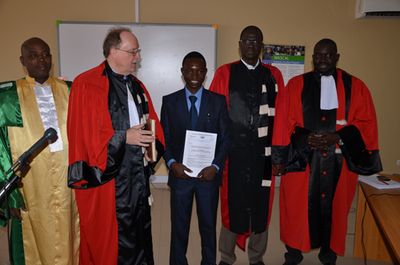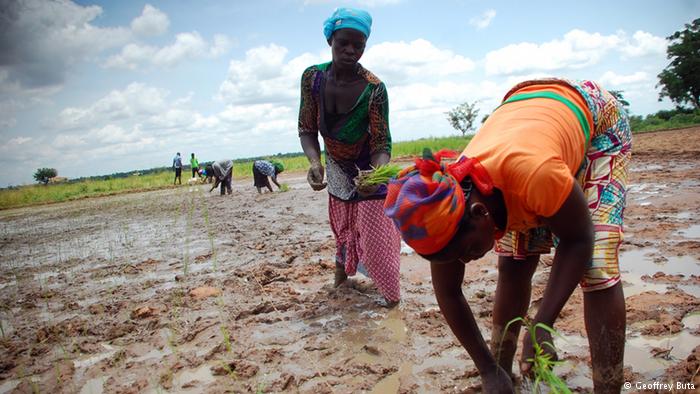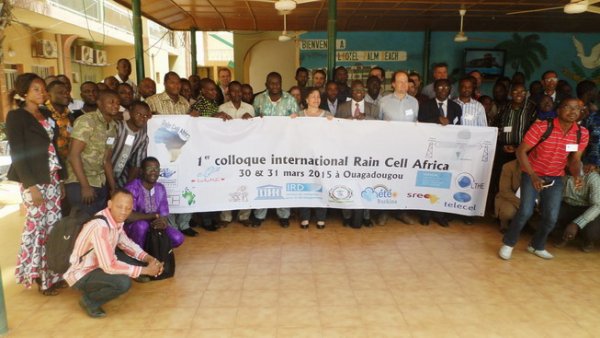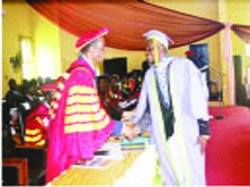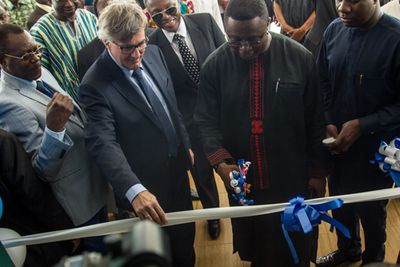An array of agricultural water management (AWM) and resource recovery & reuse (RRR) solutions have been proposed in the Volta and Niger River basins. These aim to improve agricultural productivity in different ways. They focus on various points along the transition between rural and urban landscapes, or between rainfed and irrigated farming. But are all these solutions effective and if so, how effective are they? Which solution should one choose in a certain context as the most appropriate for success? To answer these and more questions the project will assess the potential for wider use of agricultural water management and resource recovery & reuse solutions in the Volta and Niger river basins.
Researchers are specifically examining four topics: 1.) small water infrastructure for small holder irrigation, 2.) drip irrigation, 3.) safe and productive waste water reuse, and 4.) nutrient and organic matter recovery from waste. They are analyzing the social, economic and environmental effects of these interventions – alone and in combination – in the landscape. To achieve this they are mapping ecosystem services, assessing their benefits and trade-offs and examining business opportunities and gender and equity issues. Researchers will be working with, and supporting, up to twelve masters students, from Ghana and Burkina Faso, who are contributing to the project.
WASCAL’s focus and contribution within the Project will be to evaluate the actual or potential effects of the four selected AWM and RRR interventions in the delivery of multiple ecosystem services (ESS) in Burkina Faso and Ghana.
The project aims are to improve productivity, food security, livelihoods and environmental health. Producing RRR and AWM investment guides, policy briefs, technical reports and by conducting a variety of workshops, training and other key stakeholder engagement activities, researchers will:
Enable potential investors (farmers, donors, NGOs and the private sector) to better target AWM and RRR investments and other initiatives.
Provide evidence-based guidance to government agencies to help inform policy formulation on sustainable AWM and RRR interventions.
Build local capacity among government institutions, MSc students and others.
Foster increased public-private partnerships (PPP) and investments in sustainable AWM and RRR interventions.
Improve adoption rates of these solutions, especially by women, by providing gender-differentiated analysis and identifying opportunities to overcome gender-specific adoption barriers.
The Supporting Investment Decisions in Water and Land Management Across the Rural-Urban Continuum in the Volta – Niger Focal Region project aims to offer recommendations on what to use where, provide indications of business focused feasibility and identify successful strategies for expanding the use and benefits of these solutions. The project is one of six research projects under the Volta-Niger Focal Region of the CGIAR Research Program on Water, Land and Ecosystems (WLE) and will be funded for two years with about 700.000 USD. WLE is a global research program promoting a new integrated approach to sustainable intensification.
Main Funding Partners:
CGIAR Research Program on Water Land and Ecosystems (WLE).
Main Cooperation Partners:
IWMI – International Water Management Institute, Accra, Ghana
College of Agriculture and Natural Resources, Kwame Nkrumah University of Science and Technology (KNUST)
iDE BurkinaFaso
Ministry of Food and Agriculture, Republic of Ghana (Women in Agricultural Development )
WASCAL – West African Science Service Center on Climate Change and Adapted Land Use
Contact
William M. Fonta, PhD
Senior Economist
WASCAL Competence Center
Off Tel: +226 50375423
Cell: +226 64429239
Email: fonta.w(at)wascal.org


